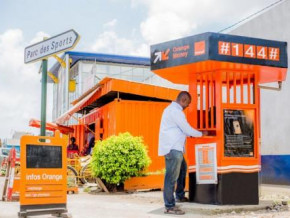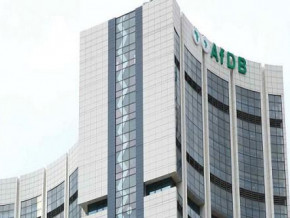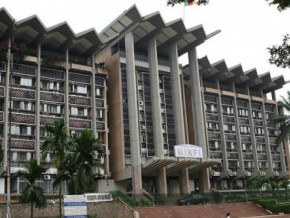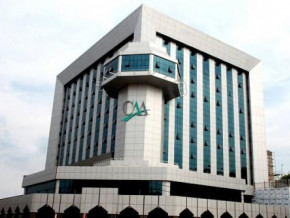
Why is Cameroon contracting so many loans so quickly... (decrypted)
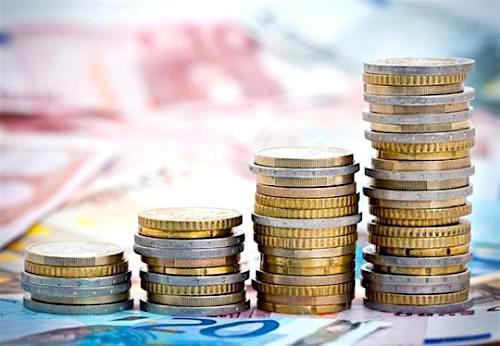
(Business in Cameroon) - FCfa 4,725 billion, or 26.3% of the Gross Domestic Product (GDP) of the country. Based on the statistics of the Ministry of Finance, this is the level of the outstanding Cameroonian public debt as at 31 December 2016, in increase by 5% compared to 2015.
Since early 2017, the debts incurred by Cameroon, at the internal level as well as with international financial partners, raised the level of indebtedness of the country to 30% of GDP (FCfa 5,383 billion at end May 2017), in increase by over FCfa 1,000 billion in five months, we learned from authorised sources. However, considering these statistics, Cameroon could still, hypothetically, contract debt to the tune of 40% of GDP, before reaching the ceiling of 70% of GDP authorised in the CEMAC zone.
It is based on this that the Cameroonian authorities, despite concerns raised by the International Monetary Fund (IMF), continue to claim that the level of indebtedness of the country is sustainable. Proof of this assurance is in the B/B sovereign rating and stable outlook, which has been invariably granted to Cameroon for the past 2 years by the American rating agency Standard & Poor’s (S&P).
This rating agency, in its April 2017 report, also expressed concern about the “increase in public indebtedness” in Cameroon, before indicating that it is expecting “the economic growth in Cameroon to remain solid, through the implementation of major public investment projects”. And there is the expression: public investments.
Indeed, since 2012, the Cameroonian government started a vast program of construction of infrastructure, as part of its “major achievements” program, meant to carry out significant projects in the country. This is the reason for the successive launch of projects for the construction of the Lom Pangar, Memvé’élé, Mékin dams; the 2nd bridge over the Wouri river and the Eastern and Western access roads to the city of Douala, projects which have been demanded for years by economic operators; or the deep water port of Kribi, which has the biggest draught on the West African coast.
Motorways, 2019 AfCON, Planut…
All these infrastructure were financed through loans granted to the government by international financial backers such as the African Development Bank, the World Bank, the French Development Agency, the European Bank of Investment, the Central African Bank of Development, or Eximbank China, a Chinese institution which has become the main provider of funds for infrastructure projects in Cameroon.
In its continuing search for a more developed infrastructure network, Cameroon initiated, in parallel, the construction of two motorways. The first, of 20 km, is to link the Nsimalen airport to the capital. The second, 250 km long, will link the two main cities of the country, Yaoundé and Douala, via a modern road network. The funding for the construction of the first 60 kilometres of the latter motorway was provided by Eximbank China.
The ongoing construction of some stretches of the cross-border roads between Sangmélima (Cameroon)-Ouesso (Congo), or Bamenda (Cameroon)-Enugu (Nigeria), projects meant to increase the level of commercial exchanges with these neighbouring countries, also required external financing.
Since 2015, to speed up the rather slow implementation of its Strategy Document for Growth and Employment (DCSE), the Cameroonian government launched a three-year emergency plan (Planut), with a global initial envelope of close to FCfa 1,000 billion.
Loan requirements of FCfa 1,145 billion in 2017
Centred around the construction of roads, social housing, development in agriculture, livestock farming and improvement of health services in the country, Planut is only proceeding with funding from international financiers. Just like the infrastructure for the organisation of the 2016 and 2019 editions of the AFCON by Cameroon.
Simply put, the dizzying upward trend in public indebtedness in Cameroon these past years is in line with the ambitions of the country to develop its infrastructure. These efforts, according to Isaac Tamba, the Managing Director of Economy and Public Investments Programs at the Ministry of Economy, Planning and Land Develop (Minepat), will continue until 2019.
This, in spite of challenges such as the fight against Boko Haram, which requires the mobilisation almost on a daily basis of important financial resources; the entry into force of the EPA, which contribute to the reduction in tax and customs revenues; or the decline in international commodity prices. This economic situation is seriously affecting the public treasury and does not leave any other choice for the government but to turn to loans.
As proof of this, according to the Minister of Finance, Alamine Ousmane Mey, the loan requirements of Cameroon for 2017 are estimated at FCfa 1,145 billion, representing more than 25% of the global budget of the country for this year. To afford some flexibility to the Public Treasury, which must not be prevented in its operations by servicing the debt, this loans are preferably taken from international financial backers who not only offer concessional loans, but also very long term refunding periods (beyond 10 years).
Brice R. Mbodiam
Mags frontpage
- Most read 7 days
- shared 1 month
- read 1 month



